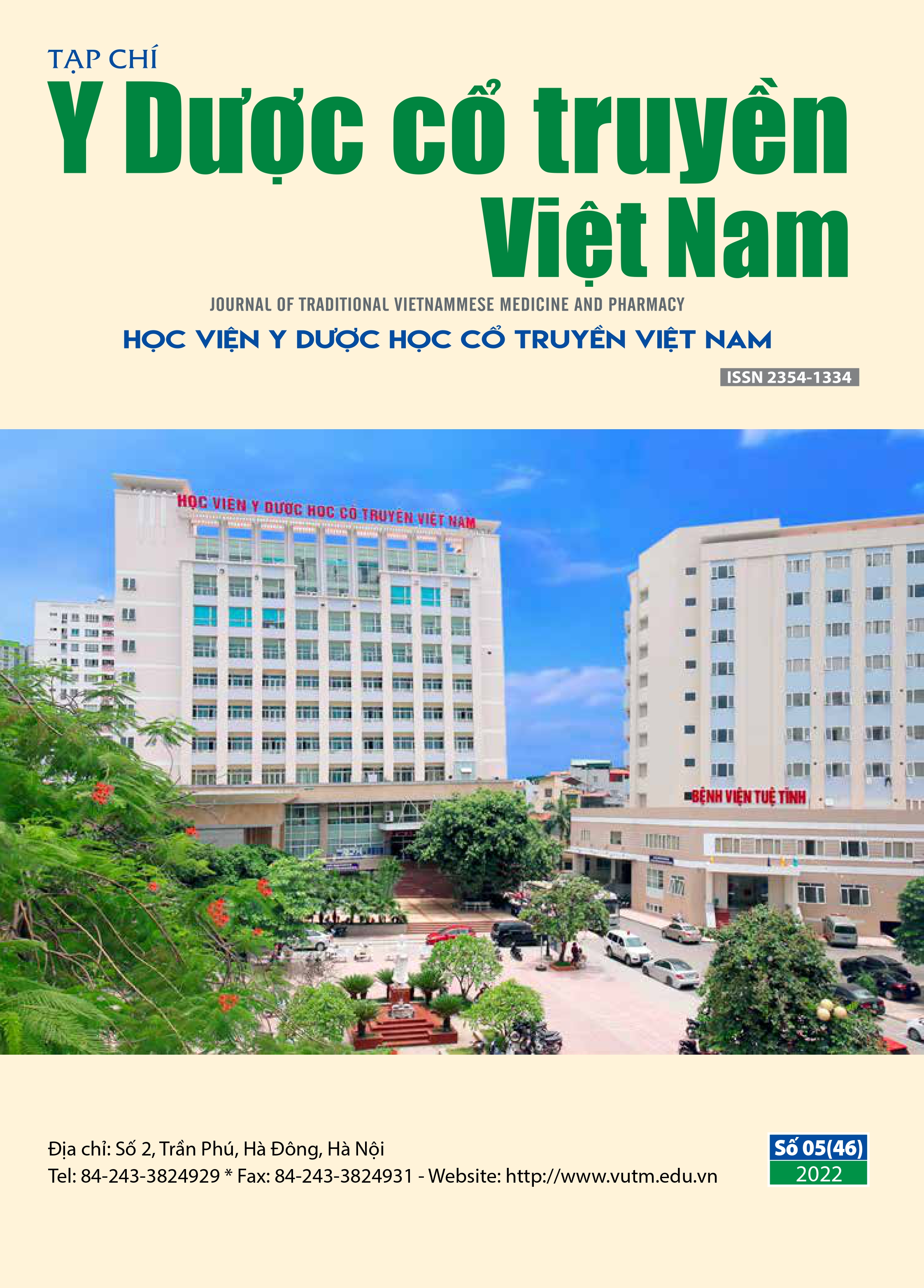Evaluation Of The Effect Of Electro-Acupuncture And Nutritional Counseling In The Treatment Of Fat Loss In Obese Patients
Main Article Content
Abstract
Objective: Evaluate the effect of electro-acupuncture and nutritional counseling in the treatment of obese patients and monitor the unwanted effects of the method during treatment.
Subjects and research methods: Study of a clinical trial comparing before and after treatment using electroacupuncture combined with nutritional intervention with a course of 20 days in 65 patients, who were under the treatment at Tue Tinh Hospital from May 2021 to February 2022. Patients were intervened by
acupuncture method based on available acupressure protocol combined with nutritional counseling according to the nutrition pyramid of the National Institute of Nutrition in 2020.
Results: Through the study, after treatment, BMI, waist circumference, buttock circumference, WHR and weight decreased statistically significantly compared to before treatment and the group that adhered to a good diet had a higher improvement performance. compared with the other group is statistically significant on most of the indicators. Overall results of assessment based on weight loss response showed that the group of patients with good response (42.42%) was higher than the group with poor nutritional compliance (34.38%).
Conclusions: Electro-acupuncture and nutritional counseling are effective in the treatment of fat loss in obese patients, the method changes BMI, WHR, and paraclinical indexes and causes few unwanted effects on patients.
Article Details
Keywords
Obesity, electroacupuncture, nutrition counseling, BMI – body mass index.
References
2. Blüher M (2019), Obesity: global epidemiology and pathogenesis. Nat Rev Endocrinol. 15(5):288-298.
3. WHO (2020), Obesity and overweight. https://www.who.int/news-room/fact-sheets/detail/obesity- and-overweight
4. Viện Dinh dưỡng (2020), Kết quả tổng điều tra dinh dưỡng toàn quốc năm 2020, Nhà xuất bản Giáo dục, Hà Nội.
5. Ngô Miễn Hoa (2012), Nội khoa Học Trung y, Nhà xuất bản Trung Y Dược Trung Quốc, Tr. 401 –
407. (陆寿康(2005) 中医症状治疗学; 人民卫生出版社; 第400-403)
6. Khoa Y học cổ truyền - Trường Đại học Y Hà Nội (2013). Châm cứu và các phương pháp chữa bệnh không dùng thuốc, Nhà xuất bản Y học, Hà Nội.
7. Bộ môn Y học cổ truyền - Trường Đại học Y Hà Nội (2020), Bài giảng y học cổ truyền, Nhà xuất bản Y học, Hà Nội.

